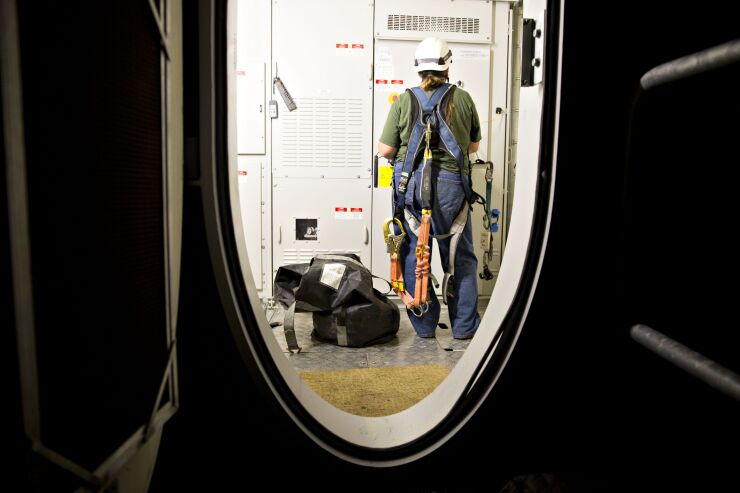Utility cooperatives facing the loss of their tax exemption under 2017 tax legislation said that passage of a $1.4 trillion government funding bill would save them millions of dollars.
Included in the funding measure are provisions of the Revitalizing Underused Rural Areas and Lands Act that allows co-ops to keep their tax exemption even if they receive state and federal grants. The bill, which languished in the House for most of the year, was attached to the funding measures that passed the House Tuesday. Senate passage is expected Friday, and President Trump has said he would sign the measures to keep the government operating.

National Rural Electric Cooperative Association chief executive Jim Matheson said the legislation eliminates an unintended consequence of the tax legislation hurriedly approved at the end of 2017.
“This package preserves the fundamental nature of the electric cooperative business model and will save electric co-ops tens of millions of dollars each year,” Matheson said in a statement after House passage. “Moreover, it protects co-op members from unfair increases in their electric rates and provides certainty to co-ops that leverage federal and state grants for economic development, storm recovery and rural broadband deployment.”
The RURAL provisions would also lower the premiums that electric co-ops pay to the Pension Benefit Guaranty Corporation for low-risk defined benefit pension plans.
Another piece repeals the “parking lot tax,” which would have assessed taxes on roughly one-third of electric co-ops across the nation. The parking lot tax affects a nonprofit that pays or reimburses employees for transit passes, using a commuter highway vehicle, providing free parking or qualified parking expenses. Under the 2017 legislation, nonprofits must now include the expense for these qualified transportation fringe benefits in unrelated business income.
Most of the 900 consumer-owned electric co-ops qualify as tax-exempt organizations as long as they derive no more than 15% of their income from non-members. Under the 2017 tax law, federal, state and local grants — even those for recovery from natural disasters — count toward the 15% threshold. If a co-op passes that limit, it loses its tax-exempt status for that year.
Without the RURAL Act, small rural co-ops such as Inside Passage Electric Cooperative in southeast Alaska would lose tax-exempt status, said IPEC chief executive Jodi Mitchell.
“We received nearly $7 million in grants between 2018 and 2019,” Mitchell told The Bond Buyer. “I believe the tax burden for 2018 alone would’ve been around $345,000, which IPEC would’ve had to borrow funds to pay. I don’t know what the tax liability would be for 2019, but we received the majority of the grant funding this year and a smaller amount is expected for 2020.”
Robert Cornell, manager of Washington Island Electric Cooperative in Wisconsin, said that a $2.6 million emergency state grant to fix an underwater cable damaged by ice in upper Green Bay threatened to push his co-op into the taxable category.
“With a total yearly operating budget of around $1.5 million, it is pretty easy to see that receiving $2.6 million in disaster aid will throw our member versus non-member income ratio way out of the 85/15% required to maintain our tax-exempt status,” Cornell said.
“In essence, the state of Wisconsin offered us help with our issue and the federal government was going to get a sizable piece of the pie in taxes, thus reducing the net effect of the help,” he said.
In Hartwick, New York, the Otsego Electric Co-op was facing a state and federal tax bill of up to 30% after a $10 million grant from the state, said chief executive Tim Johnson.
“We were obligated to use every grant dollar and we would have had to borrow to pay whatever taxes would be incurred,” Johnson said. “The grants were bid for and awarded before the tax law went into effect, so our business plan assumptions were blown up.”
Louis Finkel, senior vice president of government relations for NRECA, said the implications of the 2017 tax legislation became apparent in late 2018 after tax attorneys studied the bill, which provided tax cuts for many taxpayers and eliminated advance refunding deals for municipal bond issuers.
To fix the unintended tax provision, the co-ops helped draft the RURAL Act and line up bipartisan support. The effort came amid the impeachment proceedings against Trump and intense conflict between Republicans and Democrats. No hearings were ever held on RURAL, but sponsors were able to attach the measure to the federal spending bill, which passed nearly three months after the federal fiscal year began.





